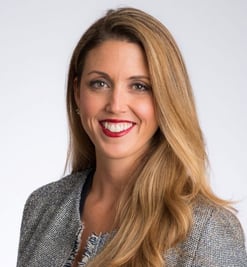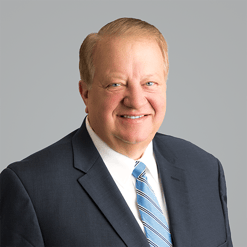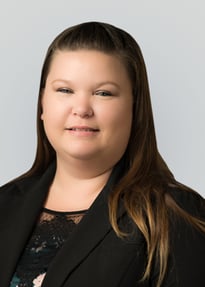First, we provide core services, starting with tax and accounting services. But our core services, along with our of our consulting services, are provided by healthcare specialists with a deep understanding of the senior living and skilled nursing industry.
That specific experience and knowledge means we’ve also been able to handle back-office services, such as billing, accounting, Medicare and Medicaid cost reports, and CFO duties for healthcare clients. We have teams specialized in these services, and our expertise runs deep.
Second, our M&A consultants are helping healthcare leaders navigate the changing merger and acquisition market. We focus heavily on business valuation and transition, and succession planning which involves everything from due diligence and negotiations to helping source buyers from Wipfli’s connections in private equity. Our new, expanded team also includes associates from Wipfli Financial Advisors and Wipfli Corporate Finance. They all work together to maximize financial results and minimize risk.
Third, we’re entering a world of reimbursement optimization with value-based payments. Operators of skilled nursing, assisted living, continuing care, and affordable housing properties are asking what the future will look like and whether they’re positioned correctly. We focus on the full continuum of care, including FQHC health clinics, hospitals, home health, hospice. So, we can consult on partnership opportunities, operations, clinical matters, and financial considerations.
Brooks: Wipfli has expanded the firm several times over the last two years. Can you tell our readers what’s next and how Wipfli leaders are positioning for additional growth?
Karlin: Wipfli has always had a strong strategy of going to market by industry, recognizing that our clients don’t need cookie cutter, off-the-shelf solutions. Wipfli’s teams understand the nuances between manufacturing, tribal casinos, nonprofit organizations and — of course — healthcare, to name a few. The business intelligence, accounting, compliance or cyber needs, for example, are so different for every industry and that need for specialized knowledge is only increasing with all the new challenges due to the pandemic.
Oeltjen: We’ve already seen a lot of excitement among our clients because now with Wipfli we can offer a greater depth and breadth of services. And that holds true in the M&A arena. More and more clients want additional business services. For example, we might be conducting due diligence as part of the M&A service, but the client may ask us to look at whether the billing systems and processes are reliable. Our organizational performance specialists were able to evaluate one client’s ability to change as part of our due diligence. It’s not that expensive and it’s often overlooked when a deal is being done, but it’s the type of assessment our team performs all the time.
processes are reliable. Our organizational performance specialists were able to evaluate one client’s ability to change as part of our due diligence. It’s not that expensive and it’s often overlooked when a deal is being done, but it’s the type of assessment our team performs all the time.
Brooks: What changes do you see in the merger and acquisition market for healthcare? How are these changes affecting the services you provide?
Oeltjen: Even before the pandemic started, more venture capital, private equity funds and institutional investors were trying to determine how they can be more active in healthcare and, in particular, the senior healthcare arena. The pandemic slowed the process a bit, but now investors are back. They see a tremendous opportunity to help drive profits in the healthcare space by differentiating services through technology and new methods of service delivery.
Karlin: Nonprofits are looking at consolidation and partnerships too. My East and West coast clients wonder whether large health centers will be a thing of the past, though the Midwest is still focused on this model. Also, home health was already popular with investors before the pandemic. Entrepreneurs see what’s going on and want to be in that market. As a good business partner it is our responsibility to help our clients but also to point out how they need to be prepared. Do they have an administrator who knows how to operate this business? Do they understand the market? We sit down with them to assess the risk before they dive in.
Brooks: Are you seeing a greater demand for due diligence services considering the COVID-19 pandemic?
Oeltjen: Yes, there has been an uptick in demand, the amount of new activity has been significant compared to past years. That being said, COVID-19 has slowed the demand for due diligence services. There was latent demand and now investors think capital gains tax rates will go higher. The deal pace is explosive, along with a general increase in the sophistication of investors in this market.
Karlin: There has been a pause due to COVID-19 as operators waited to see if more government support would be forthcoming from the Provider Relief Fund (PRF). They wondered if they should sell now or see if they would get more help. There is another consideration. Operators must hold the monies from the PRF and Paycheck Protection Program (PPP) until it is forgiven. A change in ownership raises the question of who gets the money when it’s needed to care for residents and expenses are rising. Changing rules have created a lot of chaos. For example, a client acquired a property in 2019 but the Tax ID # still listed the previous owner. Technically, the new owner can’t have the money even though he operated the property all of 2020. Those are extreme challenges. It’s rather complicated and there are a lot of unknowns about how to get a deal done under those circumstances, causing healthcare leaders to consider hiring firms like ours, with expertise in regulations.
Brooks: Prior to the COVID-19 pandemic, Wipfli conducted an analysis on the impact ICD-10 coding played in the new Patient-Driven Payment Model (PDPM) for skilled nursing providers. CMS has delayed PDPM adjustments until 2023, but what should skilled nursing providers know now prior to these adjustments being implemented? What should they be preparing for?
McClary-Brocious: I’ve been talking with quite a few providers. From a clinical perspective, it’s all about documentation. We have to make sure documentation is being completed and reviewed. Documentation has to capture all of the changes being made to the Minimum Data Set (MDS) process. Providers need to conduct their own due diligence internally and make sure their documentation supports all the ICD-10 codes now being reported on the MDS.
The other thing to consider is benchmarking. Compare the facility to the surrounding market and the national market. Is the facility accepting patients at the same acuity level as other facilities? Is the facility accepting higher acuity patients to maximize reimbursement? A comparison provides a better understanding of whether any adjustment in PDPM could impact the facility.
Also, looking again at documentation, studies from CMS show a 30% drop in therapy overall. Group therapy minutes grew 30% and then leveled off with COVID-19 because of social distancing. CMS did recognize that patient care didn’t suffer from this reduction in minutes. But we’ve been putting specific codes on claims to let CMS know that it was a COVID-19-related claim. That will make it easier for CMS to pull those dates of service and conduct post payment audit reviews, which is when the agency will request that documentation. So, now is the time to make sure everything is in order before CMS conducts an audit.
Lastly, providers need to re-examine their therapy contracts. PDPM shifted the whole payment system. We are no longer looking at volume-based care. It’s now all value-based care. Therapy contracts have to be based on value.
Brooks: CMS revised their survey process to ensure skilled nursing properties are properly prepared to respond to the COVID-19 crisis. What are the biggest concerns for skilled nursing properties regarding survey and certification issues? What is the value of bringing in a consultant to prepare for an upcoming survey?
McClary-Brocious: The value piece is simple. The operator is ensuring that a neutral party is testing the facility on that process. The consultant does a trial run to look at infection control as a surveyor would do. The survey process is detailed in 100 slides that are available to everyone. A consultant can actually test whether the process has been implemented correctly. A consultant can also prepare the operator to implement corrections.
Karlin: Everything in this environment is about staffing, staffing, staffing. The staffing shortage is here and won’t go away anytime soon. With survey mandates and continued discussions about workplace vaccine mandates for skilled nursing workers, we will continue to face staffing concerns.
Current staff also must also meet the daily safety requirements around COVID-19. They are working longer hours, and staff burnout is a major concern. Some stats show that we could be expecting a loss of one-third of the care delivery teams. Operators need to get their teams fully engaged.
An external firm like ours can provide outside perspective and a second opinion, but also mitigate some level of risk and regulatory exposure. Hiring a consultant shows the leadership team is committed to the staff. The consultant serves as a resource for the staff to support their journey. Hopefully, we will see a light at the end of the tunnel in regard to staffing, but we’re going to have to think outside the box to meet staffing ratios.
Brooks: Is there anything else you’d like our readers to know?
Karlin: These are unique times — where the challenges are great, but so are the opportunities. We can seize those opportunities, if we elevate ourselves from the day-to-day details to recognize what possible opportunity looks like. I would encourage owner/operators to take that moment. Take that opportunity to collaborate with like-minded individuals in the industry to figure out how to improve the staffing situation. What new products, such as telehealth, have changed the way we do business?
This is a scary time, but it has also brought the senior service market to the forefront. This is our chance now to sculpt the conversation. We can say, look at us. We not only survived the pandemic. We handled it well. We have a high vaccination rate, and we’re looking into the future about how to deliver care better. Operators can leverage consultants, other partnerships, and technology to thrive into the future and show the population how strong an industry this really is.